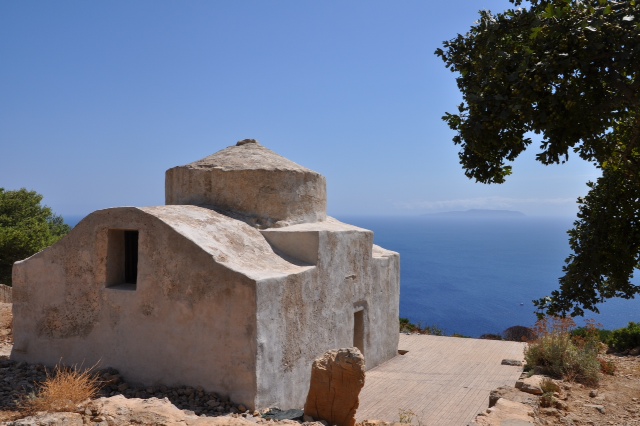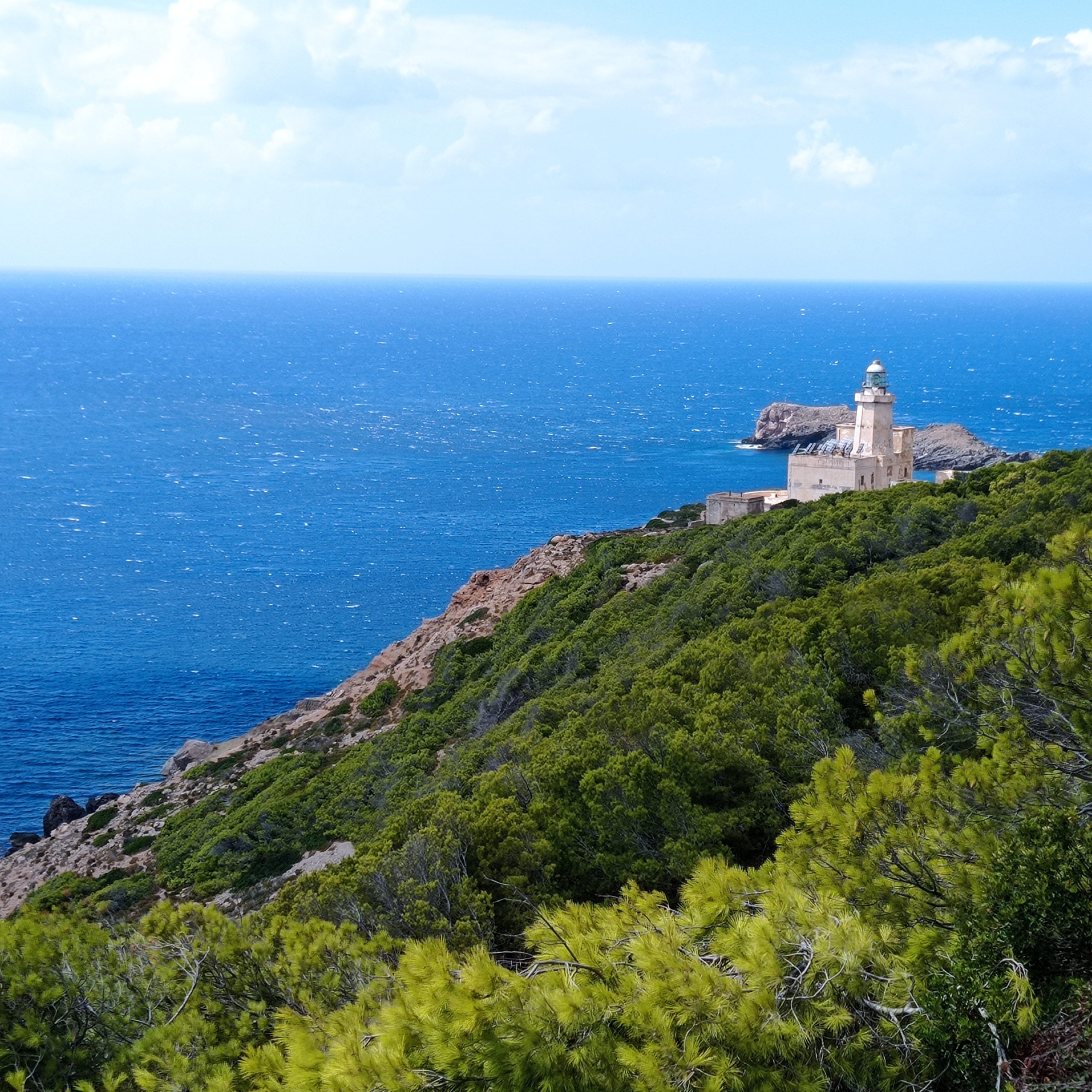That Marettimo be a island of unusual beauty It goes without saying, and I won't dwell on it too much. Wild and rocky, over the millennia it has managed to gather only an enchanted village and a few tourists. Marettimo is one of those islands that, magically, do not consist of their land, but of their sea, an extraordinary sea that in a few kilometers of coast exhibits an incredible quantity of magical caves at the water's edge, of fishy seabeds that would make the Maldives envious, of beaches from commercials. As if that were not enough, the seafarers do not care about all this, as in 1870 when there was the great fashion of the time (Rome to Italy) and they erected the only monument on the island not to the Unity but to a saint, for a miraculous catch. They were in fact great fishermen and when they were forced to emigrate they founded a colony that became famous in California, in Monterey. Today almost all of them find it more convenient to take care of tourists.
These rocks are 200 million years old, but they broke away from Sicily just 600,000 years ago. There are plants that are found here and nowhere else. In these seas the Romans faced the Carthaginians on the water for the first time, in 410 BC, and defeated them with the simple and ingenious invention of the rostra. The historian especially likes to think of this island - the extreme tip of Sicily, therefore of Italy and Europe - as the balcony of a conquest concluded by many peoples: the Romans, of course, then the Vandals, the Goths and the Ostrogoths, and so on up to the modern cousin of the Aragonese.
These rocks are 200 million years old, but they broke away from Sicily just 600,000 years ago. There are plants that are found here and nowhere else. In these seas the Romans faced the Carthaginians on the water for the first time, in 410 BC, and defeated them with the simple and ingenious invention of the rostra. The historian especially likes to think of this island - the extreme tip of Sicily, therefore of Italy and Europe - as the balcony of a conquest concluded by many peoples: the Romans, of course, then the Vandals, the Goths and the Ostrogoths, and so on up to the modern cousin of the Aragonese.


